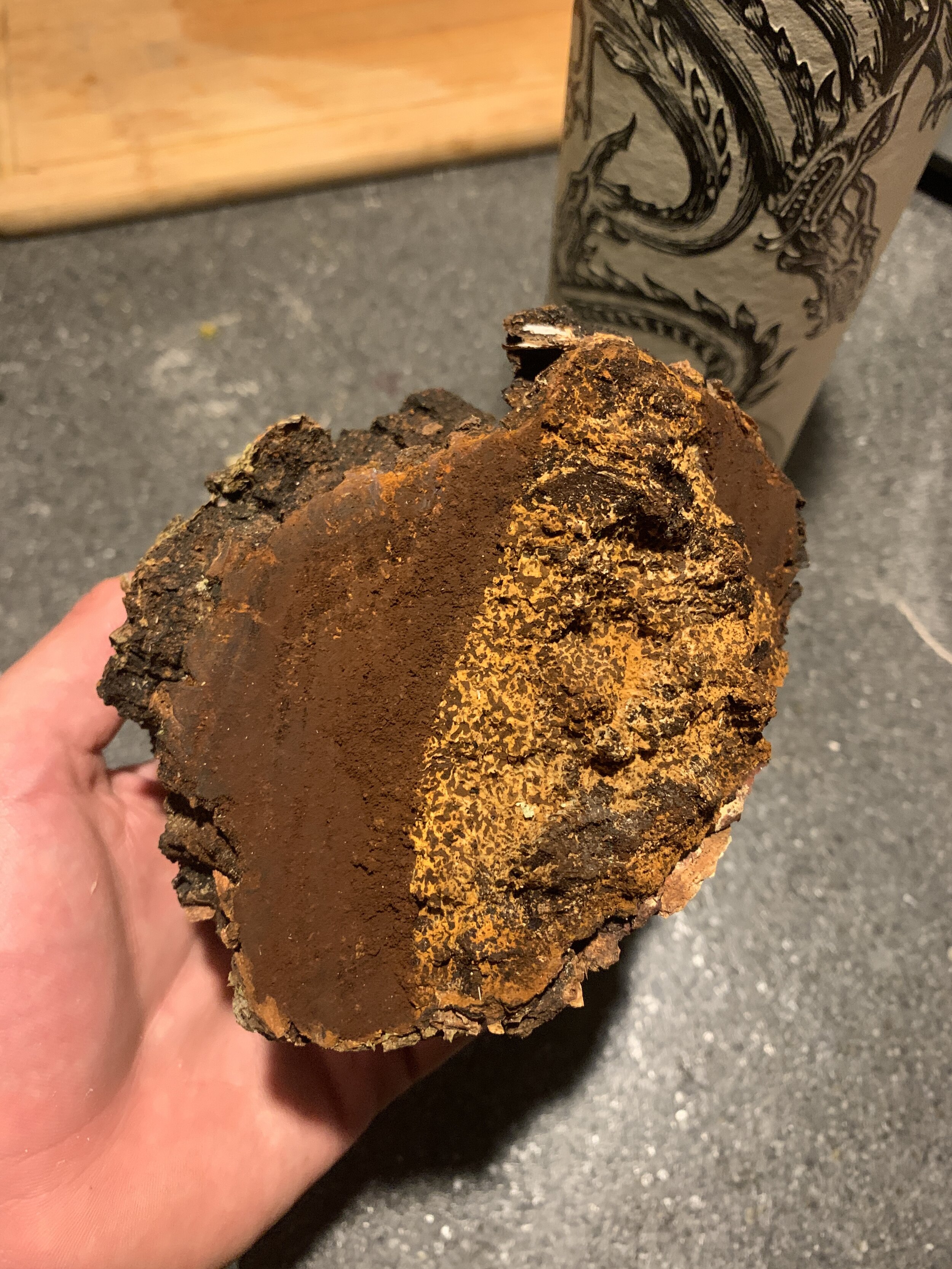Chaga Mushroom, Roasted Veggies and New Zealand’s Sustainable Farms
Welcome back to my weekly review in which I share three interesting things I have learned this week.
Wild Chaga Mushroom Extract
A couple weeks ago, I was out deer hunting and stumbled into a patch of river birch trees. I immediately marked the spot, because one of my goals for the spring is to tap some of them for their sap. Birch sap is quite nutritious and has a history of use by the Scandinavian peoples. But as I was doing this, I discovered a strange growth on one of the birch trees that immediately caught my attention. When I walked up to it my excitement rose, because I slowly realized that I had just found my first Chaga mushroom! As you can see in the picture, this Chaga was in prime condition. However, I was a little skeptical at first, because I had heard that Chaga doesn’t really grow around La Crosse, WI. It is usually associated with northern regions. Nonetheless, I harvested this specimen and brought it home. So, what to do with it? Well, most people seek out Chaga for its medicinal properties. There are even several companies that sell them in the form of powder or tea… However, after doing some research and talking to my mushroom hunting friends, I have decided that an ethanol extract (tincture) would be the best way to utilize my wild find. A lot of the potential medicinal components in Chaga are not water soluble. This means that consuming a tea would probably not provide all the health benefits the mushroom has to offer. Instead, taking the mushroom and soaking it in strong alcohol allows for a better extraction. I am currently drying the Chaga and once it is ready, I will create the tincture. This will be my first tincture, so I hope all goes well. Stay tuned for more updates on this project.
Oven-Roasted Veggies…I’ve been doing it wrong!
If you haven’t roasted veggies in the oven, you are missing out. Not only is the preparation simple and fast, but the complex flavor that comes from it is intense. There are many ways to cook veggies in the oven, but a superior way is to roast them. In the past, I would use glass pans, because that is what I had laying around. I would fill these glass pans to the brim with veggies and leave them in the oven on a high temperature until tender. Well, this week I decided to look into how professional chefs make their oven-roasted veggies, and I was shocked to find out that I had been doing it wrong. Here is what I found…First, instead of using glassware, veggies will roast much better on flat metal or stone pans. This is due to better heat transfer. Second, you want to give each piece of vegetable some room on the pan.
Sheep & Beef Farms in New Zealand are Almost Carbon Neutral
An independent analysis by Beef + Lamb NZ quantified the level of carbon sequestration that is happening on farms around New Zealand. Carbon sequestration is the process of capturing and storing atmospheric carbon dioxide, and it happens naturally. According to the analysis, the woody vegetation on sheep and beef farms is absorbing, on average, about 90% of the on-farm agricultural emissions. Additionally, the woody vegetation present on these farms also benefit the local ecosystems. This is interesting in the light of regenerative agriculture. There have been examples of farms in the US that show similar results as the farms in New Zealand. For example, White Oak Pastures in Georgia is a carbon sink, meaning that through their well-managed grazing operation, more carbon is being sequestered than emitted to the atmosphere. I am really looking forward to more analysis like these because it gives us insight into how we can improve our agricultural systems going forward so that more farms can become hubs for carbon sequestration.

